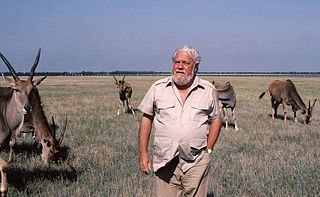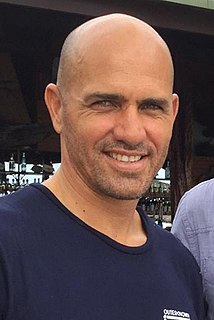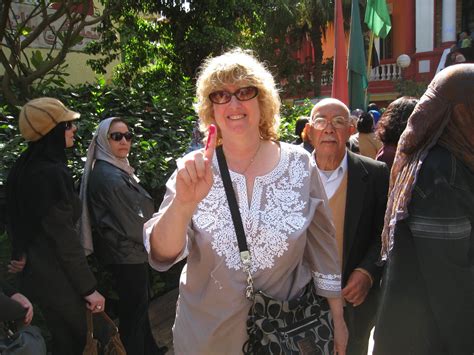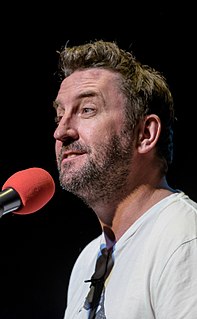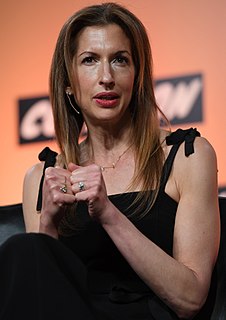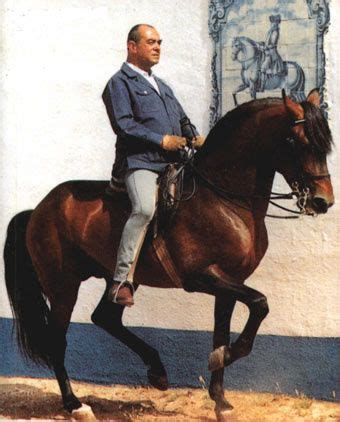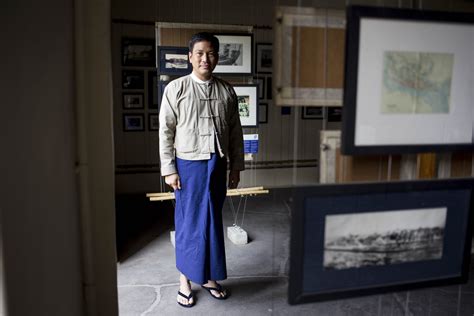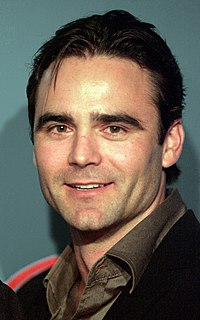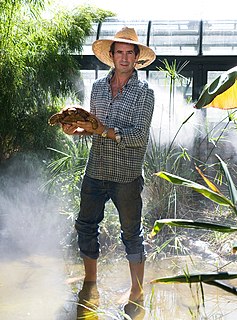Top 409 Conservation Quotes & Sayings - Page 7
Explore popular Conservation quotes.
Last updated on December 22, 2024.
I write about how in Midland, the mayor instituted water conservation measures like restrictions on car washing. He made a point though that they were only "suggestions" and not government telling people what to do. But then his constituents got very ticked off at the sight of their neighbors breaking the rules and demanded that they be made into actual laws with penalties.
The biggest gains, in terms of decreasing the country's energy bill, the amount of carbon dioxide we put into the atmosphere, and our dependency on foreign oil, will come from energy efficiency and conservation in the next 20 years. Make no doubt about it. That's where everybody who has really thought about the problem thinks the biggest gains can be and should be.
The rural economy is significantly better. Our natural resources, particularly our working lands, are more resilient. And more money is being invested in soil conservation and water preservation. Our forests will be in better shape if Congress does what it needs to do to fix the fire-suppression budget.
YIMBYs should embrace a housing reform agenda broader than increasing urban density. This should start with ending tax shelters in the form of land conservation easements to cattle ranches and farms that abut suburbs. This would create an incentive for landowners convert them either to new housing subdivisions or to genuinely new natural areas.
People who blame the Bible for the modern destruction of nature have failed to see its delight in the variety and individuality of creatures and its insistence upon their holiness. But that delight-in, say, the final chapters of Job or the 104th Psalm-is far more useful to the cause of conservation than the undifferentiating abstractions of science... Reverence gives standing to creatures, and to our perception of them, just as the law gives standing to a citizen.
You cannot begin to preserve any species of animal unless you preserve the habitat in which it dwells. Disturb or destroy that habitat and you will exterminate the species as surely as if you had shot it. So conservation means that we have to preserve forest and grassland, river and lake, even the sea itself. This is vital not only for the preservation of animal life generally, but for the future existence of man himself - a point that seems to escape many people.
Conservation is getting nowhere because it is incompatible with our Abrahamic concept of land. We abuse land because we regard it as a commodity belonging to us. When we see land as a community to which we belong, we may begin to use it with love and respect. There is no other way for land to survive the impact of mechanized man, nor for us to reap from it the aesthetic harvest it is capable, under science, of contributing to culture
Cristina Eisenberg weaves her observations as a scientist and her personal experiences afield into a resonant account about the web of life that links humans to the natural world. Grounded in best science, inspired by her intimate knowledge of the wolves she studies, she offers us a luminous portrait of the ecological relationships that are essential for our well-being in a rapidly changing world. The Wolf's Tooth calls for a conservation vision that involves rewilding the earth and honoring all our relations.
I’m honored that PBteen has seen me as someone who can help a broader audience understand the need to use recycled, repurposed and organic materials. Global conservation is a focal point of the capsule collection and it falls right in line with the change and direction I’m working towards, on a professional and personal basis. In collaborating with PBteen, we are creating a subtle and natural feel with this collection - something that has an authentic appeal for teens and their parents alike.
If you wait through long, cold hours in the November woods with a bow in your hands hoping a buck will show or if you spend days walking in the African bush trailing Cape buffalo while listening to lions roar, you’re sure to learn hunting isn’t about killing. Nature actually humbles you. Hunting forces a person to endure, to master themselves, even to truly get to know the wild environment. Actually, along the way, hunting and fishing makes you fall in love with the natural world. This is why hunters so often give back by contributing to conservation.
There are scarcities in drinking water when you pollute the groundwater with nitrates. There is a scarcity in diversity when you create huge cornfields with the same strain of corn so that when one disease strikes - which happened in the United States in the 70s - all the cornfields in the country are wiped out. That was the first time the U.S. realized the value of diversity in agriculture and began to discuss genetic resources and their conservation.
If we can successfully lift the stranglehold of bureaucracy and old ways of thinking, we can see some real innovation in biodiversity conservation in Egypt as has occurred elsewhere in the world. It's the government's call. If they continue to put people in high-level positions that have no knowledge, experience or even interest in environment, Egypt will not advance. The country has very good national experts so why not use them?
it will be objected that a constantly increasing population makes resistance and conservation a hopeless battle. this is true. unless a way is found to stabilize the nation's population, the parks can not be saved. or anything else worth a damn. wilderness preservation, like a hundred other good causes, will be forgotten under the overwhelming pressure of a struggle for mere survival and sanity in a completely urbanized, completely industrialized, ever more crowded environment. for my own part i would rather take my chances in a thermonuclear war than live in such a world.
Only within the 20th Century has biological thought been focused on ecology, or the relation of the living creature to its environment. Awareness of ecological relationships is - or should be - the basis of modern conservation programs, for it is useless to attempt to preserve a living species unless the kind of land or water it requires is also preserved. So delicately interwoven are the relationships that when we disturb one thread of the community fabric we alter it all - perhaps almost imperceptibly, perhaps so drastically that destruction follows.
Most of us still believe in the intrinsic value of nature, but I think the first century of the environmental/conservation movement demonstrated pretty clearly that this value cannot compel a civilization-wide shift toward sustainable behavior and enterprise when stacked up against the urgent economic and social needs of 7 billion people, most of whom are struggling to get out of poverty.
I have no problem with a war for oil-if we accompany it with a real program for energy conservation. But when we tell the world we couldn't care less about climate change, that we feel entitled to drive whatever big cars we feel like, that we feel entitled to consume however much oil we like, the message we send is that a war for oil in the gulf is not a war to protect the world's right to economic survival-but our right to indulge. Now that will be seen as immoral.
The breakdown of Plato's philosophy is made apparent in the fact that he could not trust to gradual improvements in education to bring about a better society which should then improve education, and so on indefinitely. Correct education could not come into existence until an ideal state existed, and after that education would be devoted simply to its conservation. For the existence of this state he was obliged to trust to some happy accident by which philosophic wisdom should happen to coincide with possession of ruling power in the state.
I spent the first years working in Jordan trying to learn as much as I could about what was taking place in the country, about where there were gaps in the development process that needed attention. Inevitably, there were certain common denominators which are fairly common to all developing societies, perhaps to all societies: that quality education be accessible to everyone, not just a limited elite few; the sustainable conservation of natural resources; the full engagement of women in national development; and the value of cross-cultural exchange and understanding to international relations.
The creative process ignites our imagination, and I believe that that same imagination is what will propel us forward with issues of social change. I do think we have to acknowledge that we are a very capitalistic and consumptive nation, and that talk about conservation or issues of sustainability is never going to be popular with the dominant culture because it means checks and balances on an economy that is reserved for the dollar, rather than an economy that honors and respects spiritual resources and the right of all life to participate on the planet, not just our species.
We have said that the State must not absorb the individual or the family; both should be allowed free and untrammelled action so far as is consistent with the common good and the interest of others. Rulers should, nevertheless, anxiously safeguard the community and all its members; the community, because the conservation thereof is so emphatically the business of the supreme power, that the safety of the commonwealth is not only the first law, but it is a government's whole reason of existence.
I grew up in a whaling town. We didn't stop whaling in Australia until 1978. And I've always lived in fishing communities. You could say I'm from the Redneck Wing of marine conservation. Everything I know about the sea I learnt at the end of a spear or a hook. Seems weird to admit it, but I hunted and killed my way to enlightenment. Eventually you see where you've been. All the traces you leave are gaps and absences. And it's a sick feeling, knowing you might bequeath a full dose of Nothing to those who come after you.
You cannot cheat with the law of conservation of violence: all violence is paid for, and for example, the structural violence exerted by the financial markets, in the form of layoffs, loss of security, etc., is matched sooner or later in the form of suicides, crime and delinquency, drug addiction, alcoholism, a whole host of minor and major everyday acts of violence.
When men sit around and talk, they are very competitive. One person will tell an anecdote and the next person will try to top that. When you get six women together, they share a lot more. They will be far more interested in what the other person has to say. The conservation is more interactive and less about individually showing off.
And I'm asking you for your good and for your nation's security to take no unnecessary trips, to use carpools or public transportation whenever you can, to park your car one extra day per week, to obey the speed limit, and to set your thermostats to save fuel. Every act of energy conservation like this is more than just common sense-I tell you it is an act of patriotism.
Revolution is everywhere, in everything. It is infinite. There is no final revolution, no final number. The social revolution is only one of an infinite number of numbers: the law of revolution is not a social law, but an immeasurably greater one. It is a cosmic, universal law - like the laws of the conservation of energy and of the dissipation of energy (entropy).
The supreme duty of the Nation is the conservation of human resources through an enlightened measure of social and industrial justice. We pledge ourselves to work unceasingly in State and Nation for ... the protection of home life against the hazards of sickness, irregular employment and old age through the adoption of a system of social insurance adapted to American use.
Political institutions, no matter how well or badly designed, depend for continued existence upon acting men; their conservation is achieved by the same means that brought them into being. Independent existence marks the work of art as a product of making; utter dependence upon further acts to keep it in existence marks the state as a product of action.
I have been asked so many times why I live a green life, why water conservation, why getting wells in places, why work with water organizations, why conserve water at home with double-flush toilets, why I tell my daughters, "Turn off the tap" so much. Sometimes I want to say, "I wish I knew the answer." My answer really is: I don't understand why everyone doesn't feel this way.
The apex of perfection in equestrian art is not an exhibition of a great deal of different airs and movements by the same horse, but rather the conservation of the horse's enjoyment, suppleness and finesse during the performance, which calls for comparison with the finest ballet, or performance of an orchestra, or seeing a play by Racine, so moving is the sight of perfectly unisoned movements.
Saving the world requires saving democracy. That requires well-informed citizens. Conservation, environment, poverty, community, education, family, health, economy- these combine to make one quest: liberty and justice for all. Whether one's special emphasis is global warming or child welfare, the cause is the same cause. And justice comes from the same place being human comes from: compassion.
Quantum events have a way of just happening, without any cause, as when a radioactive atom decays at a random time. Even the quantum vacuum is not an inert void, but is boiling with quantum fluctuations. In our macroscopic world, we are used to energy conservation, but in the quantum realm this holds only on average. Energy fluctuations out of nothing create short-lived particle-antiparticle pairs, which is why the vacuum is not emptiness but a sea of transient particles. An uncaused beginning, even out of nothing, for spacetime is no great leap of the imagination.
As one of the nation's top agricultural states, Nebraska has a great opportunity to provide input that will help shape the 2007 Farm Bill, .. This legislation will help determine commodity price supports, priorities with regard to conservation programs, as well as rural development, renewable energy and beginning farmer initiatives for several years to come.
Now, once again, we find ourselves facing rising gas prices, and the question is: This time, are we going to learn from the past? Are we finally going to get serious about energy conservation? Of course not! We have the brains of mealworms! So we need to get more oil somehow. As far as I can figure, there's only one practical way to do this. That's right: We need to clone more dinosaurs. We have the technology, as was shown in two blockbuster scientific movies, Jurassic Park and Jurassic Park Returns with Exactly the Same Plot. Once we have the dinosaurs, all we need is an asteroid.
Under the rule of the "free market" ideology, we have gone through two decades of an energy crisis without an effective energy policy. Because of an easy and thoughtless reliance on imported oil, we have no adequate policy for the conservation of gasoline and other petroleum products. We have no adequate policy for the development or use of other, less harmful forms of energy. We have no adequate system of public transportation.
I like to get into a lot of things besides movies. I've been very involved with a few specific efforts. We built this park in New York and it's been a very successful project... I worked on a conservation project in East Africa... Too much of this type of stuff can get you wrapped up in your own work and I love it.
I was interested in wildlife conservation, and I chose Georgia because they supposedly had a good forestry school. I figured it might be easier to get good grades there, too, because a lot of Southern kids would come up to school in New Jersey, and they'd always be a little behind, so I figured maybe I wouldn't have to work so hard.
Unfortunately, there's a big, bad new bully threatening ocean animals, climate change. We might save fish only to have them starve because of climate change. It seems like the problems just won't stop. That's what got me to quit my cushy University job and take a big pay cut to work on conservation.
The students of biodiversity, the ones we most need in science today, have an enormous task ahead of molecular biology and the medical scientists. Studying model species is a great idea, but we need to combine that with biodiversity studies and have those properly supported because of the contribution they can make to conservation biology, to agrobiology, to the attainment of a sustainable world.
The national parklands have a major role in providing superlative opportunities for outdoor recreation, but they have other people serving values. They can provide an experience in conservation education for the young people of the country; they can enrich our literary and artistic consciousness; they can help create social values; contribute to our civic consciousness; remind us of our debt to the land of our fathers.
There are a lot of Egyptians who live below the poverty line and are preoccupied with meeting basic needs. Therefore, we have to create tangible benefits from nature conservation. Only through economic incentives will we convince people to protect habitats, wildlife, geological formations, cultural heritage sites, etc. We need local communities to cooperate with us, not against us!
By turns sad and uplifting, Life in the Valley of Death tells the amazing tale of Alan Rabinowitz's courageous and spirited efforts to protect Burma's (Myanmar's) remaining tigers and establish the Hukawng Valley Reserve. It is hard to imagine a more passionate or exciting account of today's conservation challenges, or a more thoughtful rendering of life, death, and politics in Burma's most remote corners.
There are parliamentarians in Australia I really support. People through history, you know? Men like Ned Kelly in Australia who challenged ideals. Governor William McKell in Australia really set the tone of building a nation. The fundamentals of the country are built on what the governor McKell created. I think Sea Shepherd (Conservation Society) is a wonderful organization and I support what they do.
The long fight to save wild beauty represents democracy at its best. It requires citizens to practice the hardest of virtues--self-restraint. Why cannot I take as many trout as I want from a stream? Why cannot I bring home from the woods a rare wildflower? Because if I do, everybody in this democracy should be able to do the same. My act will be multiplied endlessly. To provide protection for wildlife and wild beauty, everyone has to deny himself proportionately. Special privilege and conservation are ever at odds.






